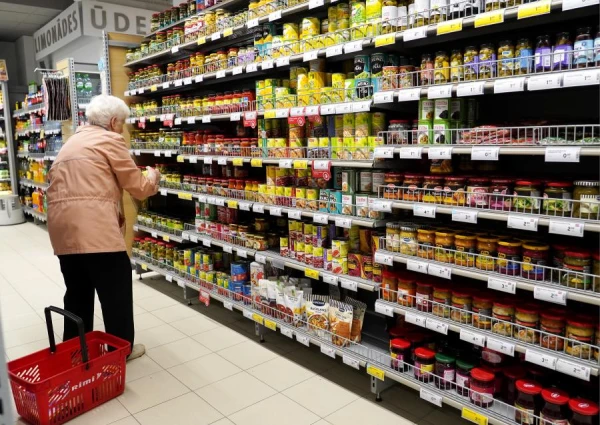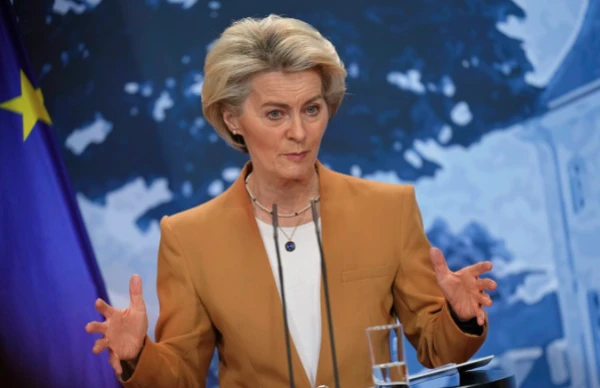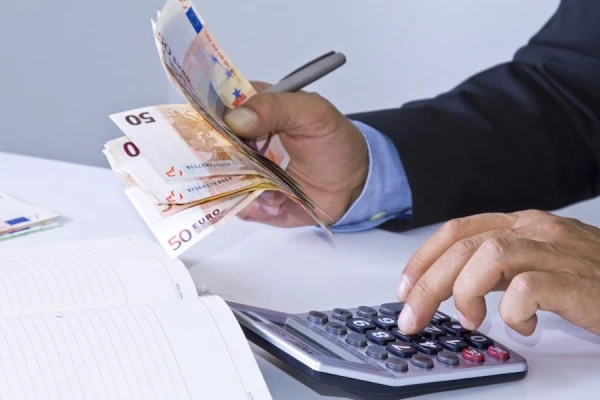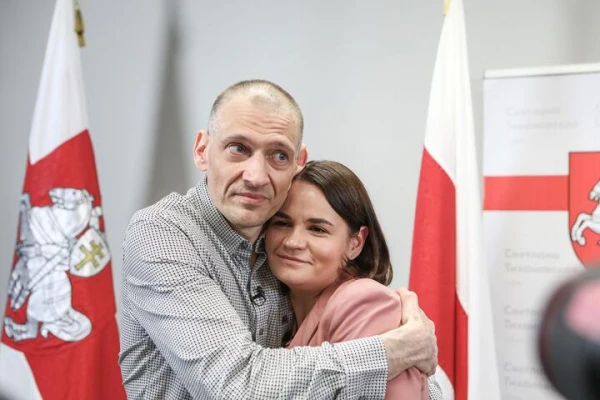
According to data on retail sales of food, beverages, and tobacco published by Eurostat, Estonia has fallen to last place among European Union countries based on a comparison of indicators for September this year and last.
The trend of buying fewer and cheaper products is confirmed by grocery store chains, writes Postimees.
Last week, Eurostat published data indicating that in September 2023, the retail sales volume index for food, beverages, and tobacco in the European Union as a whole increased by 0.5 percent compared to the same month in 2022. In the eurozone, sales volume rose by one percent.
Out of 25 EU countries for which data is available, sales volume growth was recorded in 15 states. The highest increase in purchasing activity was observed in Cyprus (10.4%), while in other countries it was a few percent. The most significant decline in sales volume was recorded in Estonia – 4.8%.
"Due to rising taxes and prices, our people can no longer afford to buy food in the same volume, and we have once again topped another anti-rating," commented the Eurostat data by Peeter Raudsepp, director of the Estonian Institute of Economic Research. "The pursuit of discounts and the replacement of familiar products with cheaper alternatives have been a daily way for people to save for many years."
Last spring, the Rimi chain published the results of a study conducted on its behalf by Norstat. According to the survey, over the past year, nearly 45% of Estonians purchased products with an orange sticker, meaning they were nearing their expiration date.
Many other retail chains also note that their customers are increasingly hunting for discounts, choosing cheaper products, and forgoing the purchase of organic products in order to save money.
"Currently, almost every second product in the shopping cart has a promotional price tag," noted Mariann Järvela, communications manager of the Selver chain, in July.
The cost of the food basket calculated by the Estonian Institute of Economic Research has increased by almost ten percent year-on-year (September to September). Meanwhile, in most major retail chains, sales growth has not kept pace with price increases.
"The decline in retail sales of food has been ongoing since the second quarter of 2022 – for three and a half years now! – Raudsepp noted. – This trend raises serious concerns and clearly demonstrates the decline in the purchasing power of the population. Claims that Estonians have never lived so well are not true. GDP per capita in terms of purchasing power parity has been declining for several years: we have fallen behind Lithuania and allowed Latvia to significantly reduce the gap."
According to him, all neighboring countries have been seeking ways to mitigate rising prices and increase the confidence and well-being of citizens by introducing reduced VAT rates on food and sharing the tax burden with banks through a so-called bank tax.
"The reduction of taxes for online casinos and the simultaneous refusal to discuss a reduced VAT rate on food is primarily a cynical attitude towards one's own people," assessed Raudsepp the situation. "Latvia's plan, for example, was the opposite – to reduce the VAT rate on food and increase taxes on harmful habits."
"Undoubtedly, we have felt the impact of global factors; the growing aggressiveness of Russia has had an economic impact on us," acknowledged Raudsepp. "However, these factors similarly affect the entire region." He believes that the reason Estonia finds itself in a worse position compared to its neighbors is due to decisions in tax policy.
"Any indicators characterizing the state of the economy should be compared not only with our own previous results. To measure real progress, we must compare them with the indicators of our neighbors who are under the influence of the same circumstances and are facing the same problems as we are, for example, strengthening defense capabilities," Raudsepp reflected.
According to a study conducted by Norstat at the end of October, 64% of respondents fully or somewhat agree that reducing VAT on food will lead to a real drop in prices for consumers.
"The government should show optimism along with its people, seek ways, and negotiate with various parties to ensure that the reduction of VAT on food takes place," suggested Raudsepp. "This is necessary for two reasons: first, to improve the material well-being of people (food prices continue to rise, and eliminating the 'tax hump' will not help low-income residents), and second, to revive the food sector."
Raudsepp criticized the government for planning to change the statistical methodology instead of reducing VAT on food to artificially lower the level of food prices. "In stores, prices will not change as a result. We will momentarily see deceptively low growth or even a decline, and then growth will continue at the same pace," he believes.












